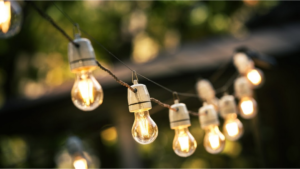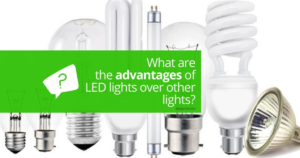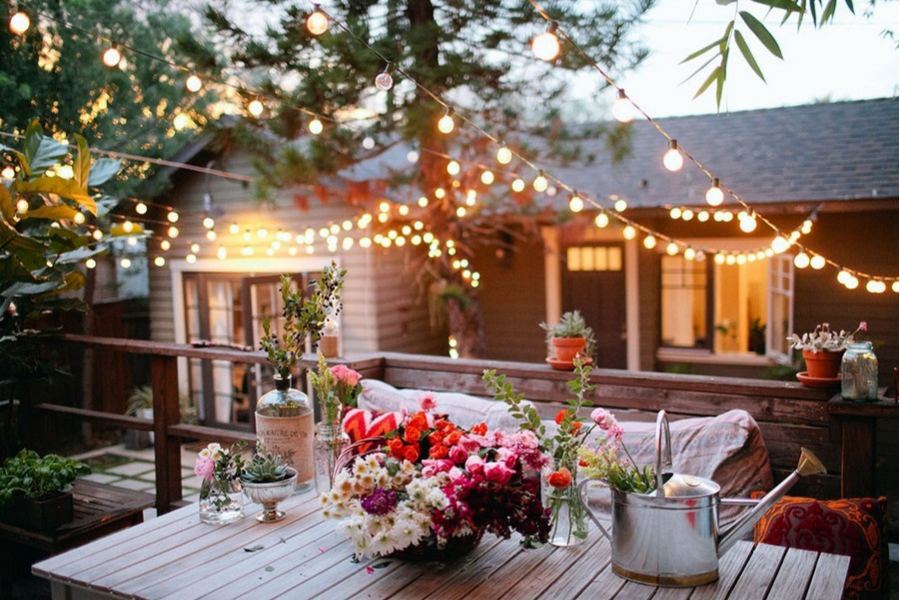The secret to effective light bulb in your garden comes down to understanding how plants grow, and why they need light in specific colors. You may be asking why plants don’t get all their needed wavelengths from sunlight. Which has an answer; plants actually can’t make use of all wavelengths emitted by sunlight due to chlorophyll, which helps capture blue and red wavelengths for photosynthesis purposes. Hence, you’ll want to look for a bulb that best fits your needs. For instance, if you’re looking to plant greens or other vegetables or herbs, you’ll want to find bulbs with high color temperatures at 5000K or 6000K. Whereas if you’re going with flowers or shrubs, try picking ones with the color temperature at 3000K or 4000K. In this article you should have clear knowledge regarding quality light bulb for lightening up you garden. Moreover, you would know the best affordable light bulb that suits you most!
What is a Lightbulb?
In order to successfully review a light bulb, it’s important to first know exactly what a lightbulb is. According to Wikipedia, a lightbulb is an electric lamp consisting of a glass bulb with a wire filament heated by passing an electric current through it. It produces light by incandescence, that is, by heating a filament until it glows white-hot. Pretty cool!

How Does it Work?
Smart light bulbs are nothing new, but finding one that’s smart, affordable and easy to use can be a challenge. Until now. Meet Candle Lite—an LED light bulb with an app that gives you full control over how it works. Want to turn on your lights from across town? No problem! Want them to change colors? Done! Candle Lite is probably best used in your garden since it makes every plant look healthy and vibrant. It also emits enough heat to keep frost at bay while helping your veggies grow faster than ever before. Buy yours today and watch your garden flourish like never before!

What Are the Advantages of LED over Incandescent?
In an incandescent bulb, a filament is heated until it glows and produces light. In an LED, when current passes through a semiconductor material it produces light. Incandescent bulbs typically produce about 20 lumens per watt of energy used while LED lights can produce up to 150 lumens per watt in some cases. This means that a 60-watt incandescent lamp may give off a comparable amount of light as 30 watts worth of LEDs in some cases. For those interested in garden lighting, these facts mean your lights will last longer and use less energy than most others available on today’s market. You also won’t have to worry about replacing burnt-out light bulbs because these only need to be changed once every 10 years or so.

Why Do I Need a Lightbulb?
All plants need light in order to grow and thrive. If you want lush, green plants and a beautiful garden, then you’ll need to provide enough light for your garden—otherwise, your plants will just turn yellow and die. And we all know how depressing it is to look at a sad garden, so we want to avoid that situation if possible! Thankfully, there are some affordable solutions out there. We’re going to discuss them below. First, let’s talk about why lightbulbs are better than other lighting options for gardens.
Is It Really That Good?
We all want to save money and be green, but we also want things that work and look nice. For those looking to replace an old light bulb with a new energy-efficient option, it may be tempting to choose a cheap alternative. However, sometimes we need to consider whether we’re getting what we pay for. Here’s a look at one such inexpensive option (and why you should spend a little more instead). This above section can be used if you are actually reviewing an object or product; however, if you are only providing general information about these types of bulbs, use it to review other sources. This will enhance your credibility as someone who knows what they’re talking about! Make sure not to just repeat their information though; try to find any additional ways in which they can help users.



Recent Comments